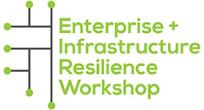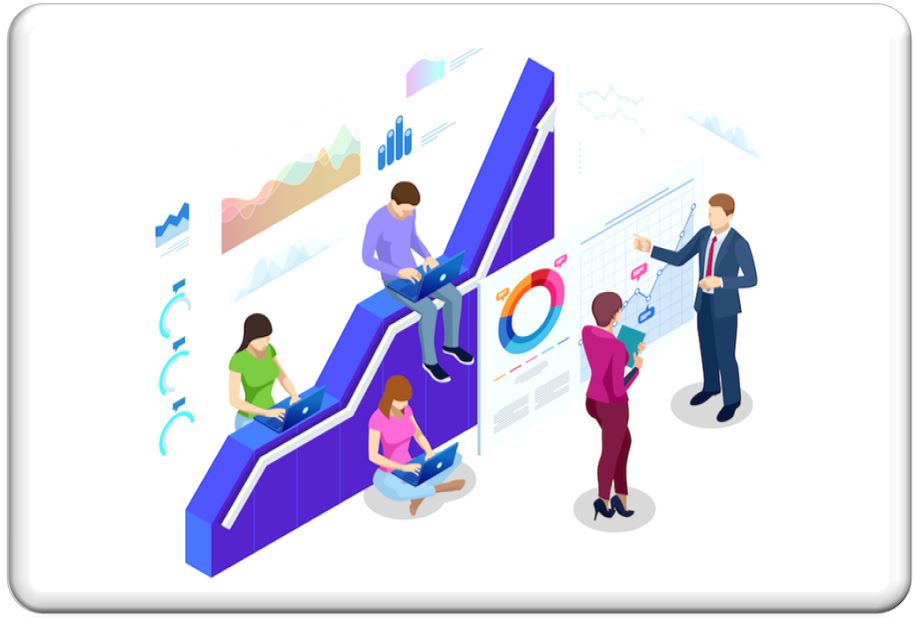
This conference explores multifaceted resilience strategies for the modern enterprise that address dependence on external systems, such as the environment, stakeholders, shareholders, and society.
Important Dates:
- Abstracts(max 300 words): Poster Submissions are being accepted now up until September 30th, 2020
View the Meeting Guidelines
View the Program Book

Featured Speakers
Conference Topics
Defining, Quantifying, and Engineering Resilience
The concept of resilience is now frequently invoked by government and industrial sectors in the US and around the world, acknowledging that social, ecological, and economic systems require management approaches recognizing their complexity. The talks in this session explore the concept of resilience, and the different ways resilience is defined and quantified in various disciplines and by some government and industrial entities, and how some government and industrial entities are accommodating it. The aim is to extract and unify approaches for quantifying resilience for systems in energy and process industries and to provide insights into basic aspects of resilience engineering: responding, monitoring, anticipating, and learning. The talks will discuss current developments and frameworks to support the assessment of resilience engineering, emergency management, preventive maintenance, uncertainty, and complexity, also exploring the possibility of using data science and analytics in basic aspects of resilience engineering.
of resilience is now frequently invoked by government and industrial sectors in the US and around the world, acknowledging that social, ecological, and economic systems require management approaches recognizing their complexity. The talks in this session explore the concept of resilience, and the different ways resilience is defined and quantified in various disciplines and by some government and industrial entities, and how some government and industrial entities are accommodating it. The aim is to extract and unify approaches for quantifying resilience for systems in energy and process industries and to provide insights into basic aspects of resilience engineering: responding, monitoring, anticipating, and learning. The talks will discuss current developments and frameworks to support the assessment of resilience engineering, emergency management, preventive maintenance, uncertainty, and complexity, also exploring the possibility of using data science and analytics in basic aspects of resilience engineering.
Resilience in Complicated and/or Complex Systems
 In nearly every case, infrastructure and natural systems are interconnected and dependent on one another. The resilience of one system will have an impact on another system, and vice versa. To assess these complex systems, one will need to evaluate their interdependence. For example, the complexity and interdependency of today’s supply chains make it essential to consider their resilience in the face of unexpected disruptive events, such as COVID-19 whose effects we are continuing to experience, and to investigate investment strategies for enhancing their resilience under the limited availability of resources. This session will focus on the understanding resilience of complicated and complex systems such as chemical plants, chemical supply chains, and energy networks and investigating approaches to strengthen the resilience of these systems.
In nearly every case, infrastructure and natural systems are interconnected and dependent on one another. The resilience of one system will have an impact on another system, and vice versa. To assess these complex systems, one will need to evaluate their interdependence. For example, the complexity and interdependency of today’s supply chains make it essential to consider their resilience in the face of unexpected disruptive events, such as COVID-19 whose effects we are continuing to experience, and to investigate investment strategies for enhancing their resilience under the limited availability of resources. This session will focus on the understanding resilience of complicated and complex systems such as chemical plants, chemical supply chains, and energy networks and investigating approaches to strengthen the resilience of these systems.
Sustainability and Circularity in Resilience
 The terms sustainability and resilience are often used together. Sustainability is thought of as a long-term requirement of human activities, while resilience is a shorter-term requirement. Resilience is needed for a system to be sustainable, but all resilient systems are not sustainable. Circularity is often expected to enhance sustainability and resilience. This session will focus on issues at the intersection of sustainability, circularity, and resilience. How are these properties measured? What is the relationship between them? Are there strategies that enhance all three properties? Both theoretical exploration and applications are welcome. Emphasis may be on systems at small or large scales, including cellular and molecular systems, process flowsheets and supply chains, and entire life cycles and food webs.
The terms sustainability and resilience are often used together. Sustainability is thought of as a long-term requirement of human activities, while resilience is a shorter-term requirement. Resilience is needed for a system to be sustainable, but all resilient systems are not sustainable. Circularity is often expected to enhance sustainability and resilience. This session will focus on issues at the intersection of sustainability, circularity, and resilience. How are these properties measured? What is the relationship between them? Are there strategies that enhance all three properties? Both theoretical exploration and applications are welcome. Emphasis may be on systems at small or large scales, including cellular and molecular systems, process flowsheets and supply chains, and entire life cycles and food webs.
Safety in Resilience
Safety has been an area of research and practice for many decades across many fields. Many methods and concepts developed for assessing and developing safe systems may also contribute to their resilience. For some systems there may be trade-offs between safety and resilience, raising questions about managing this trade-off. This session will focus on these and other issues at the intersection of safety and resilience. Conceptual and modeling research, along with practical applications or insight are most welcome for this session.













